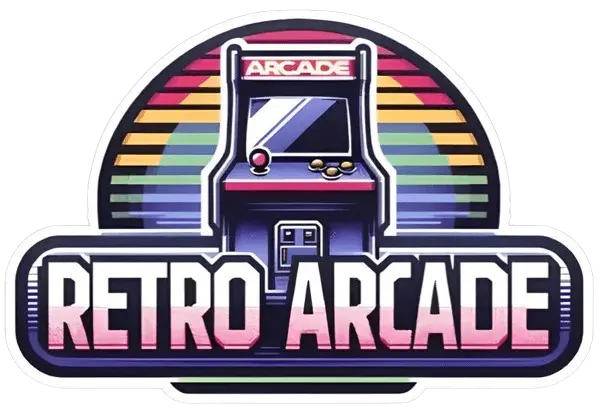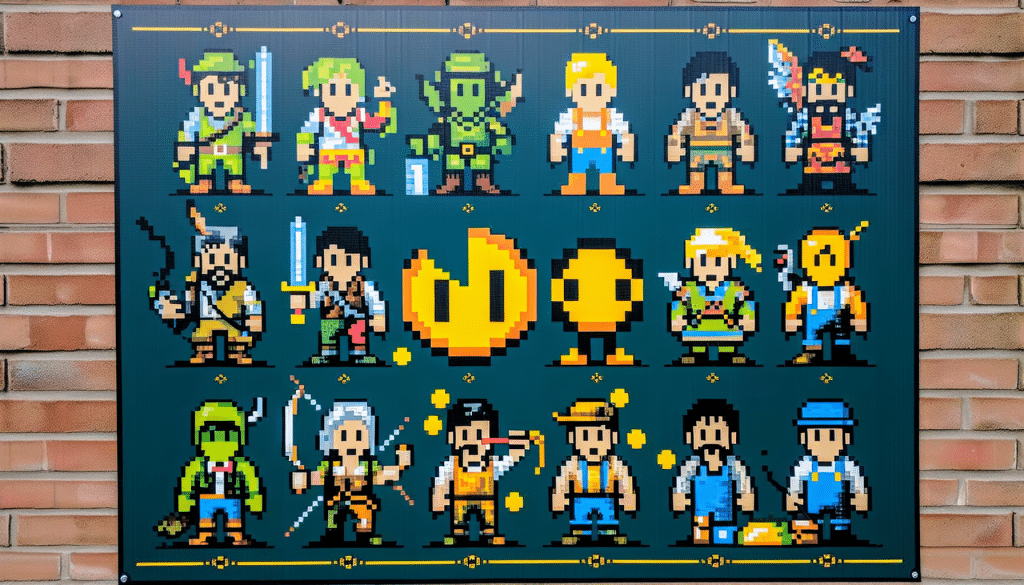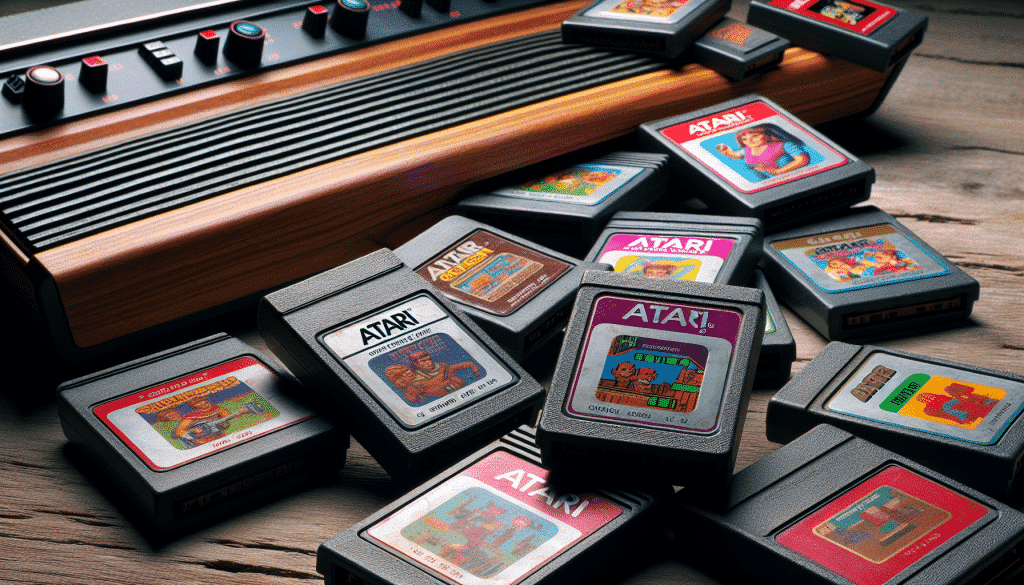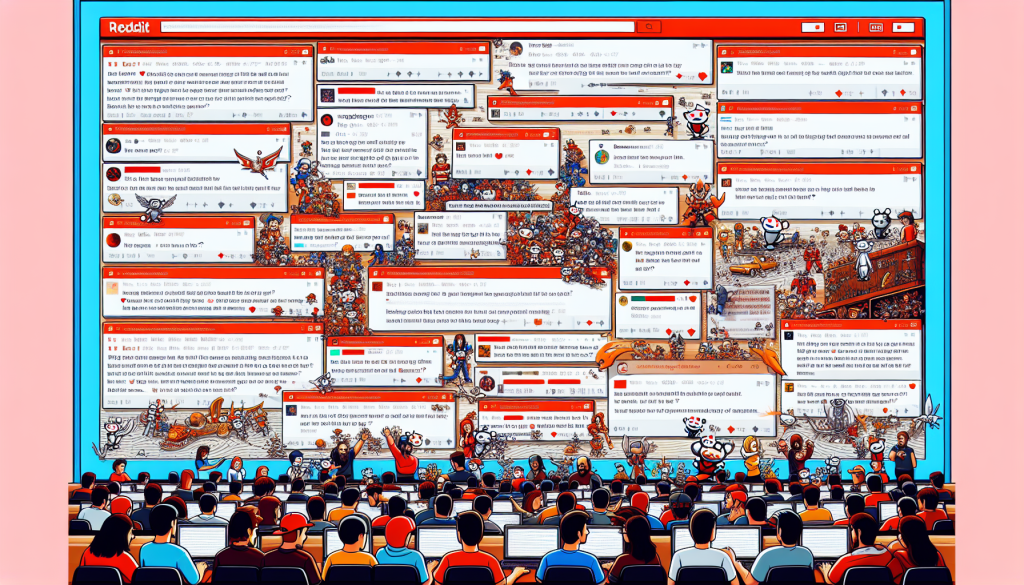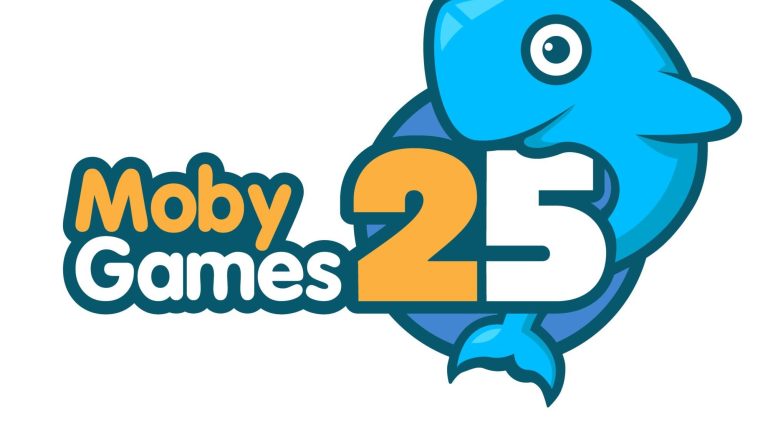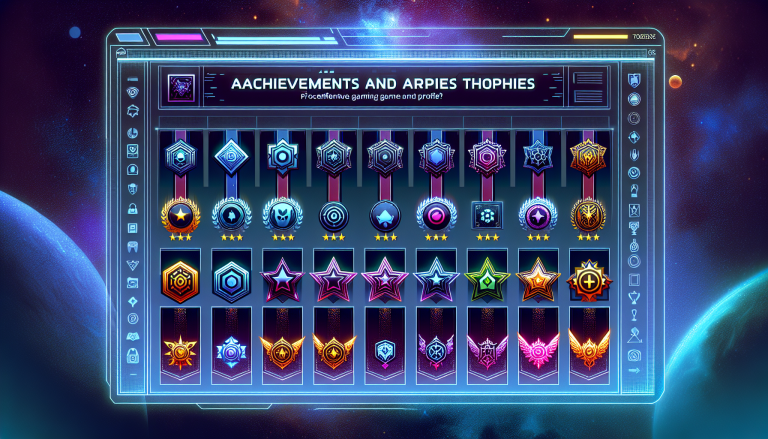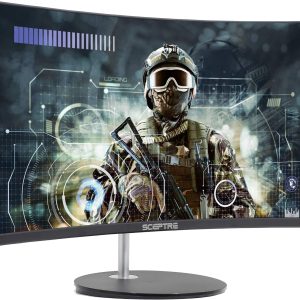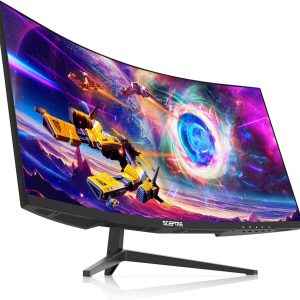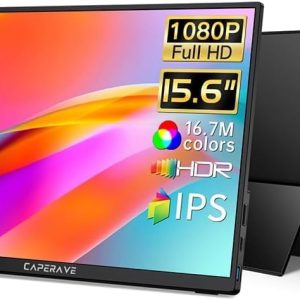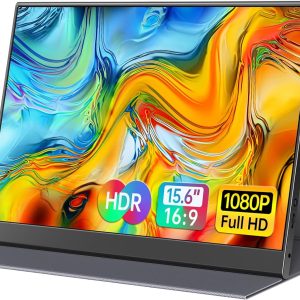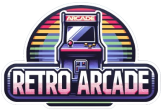Advantages of Using Emulators for Retro Gaming
Are you a fan of retro gaming? Do you long for the days of classic video games and want to experience them all over again? Well, you’re in luck! Thanks to emulators, you can bring back the nostalgia and enjoy your favorite retro games on your modern devices. In this article, we’ll explore the advantages of using emulators for retro gaming and why they are a popular choice among gamers.
1. Wide Range of Compatibility
One of the biggest advantages of using emulators is the wide range of compatibility they offer. Whether you want to play games from the Atari 2600, NES, SNES, Sega Genesis, or even PlayStation 1, there’s an emulator out there for you. Emulators are designed to mimic the behavior of the original gaming consoles, allowing you to play games from different platforms all on one device.
2. Convenience and Accessibility
Emulators provide a convenient and accessible way to play retro games. Gone are the days of digging through your attic to find your old gaming console or cartridges. With emulators, all you need is a computer or a smartphone to start playing your favorite games. You can easily download emulators and ROMs (game files) from the internet, making the process quick and hassle-free.
3. Enhanced Graphics and Performance
Emulators often offer enhanced graphics and performance options that can improve your gaming experience. With the ability to upscale resolutions and apply filters, you can make retro games look even better than they did on the original hardware. Additionally, emulators allow you to save your progress, use cheat codes, and even fast-forward through certain parts of the game, adding a new level of convenience and customization.
4. Game Preservation
Emulators play a crucial role in preserving gaming history. As technology advances, older gaming consoles and cartridges become harder to find and more susceptible to damage. Emulators allow us to preserve and enjoy classic games that may otherwise be lost to time. By digitizing these games, we ensure that future generations can experience the magic of retro gaming.
5. Community and Online Features
Emulators often come with built-in online features, allowing you to connect with other retro gaming enthusiasts. You can join online communities, participate in multiplayer matches, and even share your gaming experiences with others. The sense of community that emulators foster adds another layer of enjoyment to the retro gaming experience.
So, there you have it! Emulators offer a wide range of advantages for retro gaming enthusiasts. They provide compatibility, convenience, enhanced graphics, game preservation, and a sense of community. However, it’s important to note that using emulators should be done legally, respecting copyright laws and supporting game developers. With that in mind, grab your favorite retro game, fire up an emulator, and embark on a nostalgic gaming journey!
Benefits of Using Original Hardware for Retro Gaming
When it comes to retro gaming, there’s something undeniably nostalgic about playing on the original hardware. Whether you’re dusting off your old Nintendo Entertainment System or firing up your Sega Genesis, using the original hardware can provide a truly authentic gaming experience. But besides the sentimental value, there are several advantages to using original hardware for retro gaming.
1. Authenticity
One of the biggest benefits of using original hardware is the authenticity it brings to the gaming experience. Playing on the actual consoles and controllers that were used during that era can transport you back in time and give you a true sense of what gaming was like in the 80s or 90s. The feel of the controller in your hands, the sound of the cartridge clicking into place, and the visuals on the CRT screen all contribute to an immersive and genuine retro gaming experience.
2. Preservation of History
Using original hardware allows you to preserve a piece of gaming history. Consoles and cartridges from the past are not just nostalgic artifacts; they are tangible reminders of the evolution of gaming. By keeping and using these consoles, you are contributing to the preservation of gaming history for future generations to appreciate. It’s like owning a piece of the past and becoming a custodian of gaming heritage.
3. Compatibility
Another advantage of using original hardware is that it ensures compatibility with the games designed for those specific consoles. Emulators may have compatibility issues, requiring additional tweaking or adjustments to run certain games smoothly. With the original hardware, you can be confident that the games will work as intended, without any glitches or compatibility hiccups. This allows you to fully enjoy the games without any distractions.
4. Physical Collectibility
For many retro gaming enthusiasts, collecting physical copies of games and consoles is part of the joy. Owning the original hardware not only allows you to play the games, but also opens up the opportunity to build a physical collection of cartridges, discs, and consoles. Displaying these items on your shelf or in a dedicated gaming room can be a source of pride and a great conversation starter for fellow gaming enthusiasts.
5. Enhanced Aesthetics
Let’s not forget about the aesthetic appeal of original hardware. The design and look of classic consoles can be visually pleasing, with their unique shapes, vibrant colors, and retro styling. Playing games on these consoles not only takes you back in time, but also adds a touch of vintage charm to your gaming setup. There’s something special about the visual appeal of original hardware that emulators simply can’t replicate.
6. Connection with Community
Using original hardware can also create a sense of connection with the retro gaming community. Attending gaming conventions or joining online forums and communities dedicated to retro gaming allows you to interact with like-minded individuals who share your passion for nostalgia. Sharing stories, tips, and recommendations about specific consoles and games can enhance your gaming experience and make it even more enjoyable.
7. Support for Indie Developers
Lastly, using original hardware can help support indie developers who continue to create new games for retro consoles. By purchasing and playing these indie games, you contribute to the thriving retro gaming scene and provide encouragement for developers to keep creating unique experiences. Supporting the indie gaming community ensures that the retro gaming ecosystem remains vibrant and diverse.
In conclusion, while emulators have their advantages, there is a certain magic and authenticity in using original hardware for retro gaming. From the nostalgic experience to the preservation of history, compatibility, physical collectibility, enhanced aesthetics, community connection, and support for indie developers, playing on the original consoles and controllers can truly enhance your retro gaming journey. So, dust off those old consoles, grab your favorite games, and get ready to embark on a nostalgic adventure!
Drawbacks of Emulators for Retro Gaming
While emulators offer a convenient way to play retro games, they do come with their fair share of drawbacks. It’s important to consider these limitations before fully embracing the world of retro gaming through emulators.
1. Compatibility Issues
One of the major drawbacks of using emulators for retro gaming is the potential for compatibility issues. Emulators may not always support every game, especially those with complex hardware requirements. This means that you may not get to experience all the games you wish to play.
Additionally, emulators can sometimes struggle to accurately replicate the original gaming experience due to differences in hardware and software configurations. This can lead to glitches, graphical errors, and audio issues, diminishing the nostalgia factor that many retro gamers seek.
2. Legal and Ethical Concerns
Another drawback of using emulators is the legal and ethical concerns that can arise. Emulators themselves are not illegal, but downloading and playing ROMs (read-only memory files) of games you do not own the original copies of is a violation of copyright law.
Many retro gaming enthusiasts argue that emulators can be used to preserve and enjoy older games that are no longer commercially available. While this is a valid point, it’s important to always respect the intellectual property rights of game developers and publishers.
3. Lack of Authenticity
One of the most significant drawbacks of using emulators is the lack of authenticity they offer. Retro gaming is all about recreating the experience of playing games on the original hardware, complete with the feel of the controllers, the visual quirks of the CRT displays, and the sounds of the consoles.
Emulators, while capable of delivering an enjoyable gaming experience, cannot fully replicate this authenticity. They often lack the subtle nuances and quirks that made playing games on the original hardware so special.
4. Limited Multiplayer Options
Retro gaming is not only about reliving childhood memories but also about connecting with friends and family through multiplayer games. Unfortunately, emulators often have limited multiplayer options, making it challenging to enjoy the same level of social interaction as with original hardware.
While some emulators do offer online multiplayer capabilities, they can be unreliable and may not provide the same seamless experience as playing on original hardware. Additionally, the lack of physical controllers for multiplayer games can also detract from the overall experience.
5. Potential for Over-reliance
Lastly, using emulators for retro gaming can lead to a potential over-reliance on digital copies of games. As technology advances, original hardware may become harder to find and maintain, making emulators seem like the only viable option.
However, it’s important to remember that part of the charm of retro gaming lies in the physicality of the original consoles and cartridges. Owning and maintaining original hardware not only allows for a more authentic experience but also helps preserve gaming history for future generations.
In conclusion, while emulators offer convenience and accessibility, they do come with drawbacks that can detract from the overall retro gaming experience. It’s important to weigh the pros and cons carefully and make informed decisions about whether to embrace emulators or seek out original hardware for a more authentic gaming experience.
The Limitations of Original Hardware for Retro Gaming
So, you’re a retro gaming enthusiast who loves the nostalgia of playing classic video games from the past. You might be wondering, why not just use the original hardware? While there are certainly benefits to using original hardware for retro gaming, it’s important to acknowledge the limitations as well. Let’s dive into some of the reasons why relying solely on original hardware may not be the best option.
1. Availability and Rarity
One major limitation of original hardware is its availability and rarity. As time passes, finding working consoles and cartridges from decades ago becomes increasingly difficult. Popular retro gaming consoles, such as the Nintendo Entertainment System or the Sega Genesis, have become collector’s items, driving up their prices in the process. This makes it challenging for gamers who want to experience the classics without breaking the bank.
2. Maintenance and Repairs
Another drawback of using original hardware is the need for maintenance and repairs. Older consoles and cartridges are prone to wear and tear, and finding replacement parts can be a hassle. Additionally, if you’re not particularly skilled in electronics or console repairs, you may need to rely on professional services, which can be costly. This can result in lengthy downtime, hindering your gaming experience.
3. Limited Connectivity
Original retro gaming consoles often lack modern connectivity options. In an era where online multiplayer and sharing gameplay experiences are prevalent, the lack of Wi-Fi or Ethernet capabilities limits your ability to connect with other players or share your achievements. This can be isolating and prevent you from fully engaging in the retro gaming community.
4. Storage and Portability
Original hardware typically relies on cartridges or discs for game storage, which can take up physical space and become cumbersome to manage. Additionally, carrying around a collection of cartridges or discs when you want to play games on the go is not practical. This lack of portability can be inconvenient, especially for gamers who enjoy gaming on the move.
5. Compatibility and Display Issues
Making older consoles work with modern TVs and displays can be a challenge. Original hardware often uses older video and audio connections that may not be compatible with newer displays, requiring additional adapters or converters. Furthermore, older consoles may not support high-definition resolutions, resulting in a less-than-ideal gaming experience on modern screens.
6. Limited Game Selection and Functionality
Original hardware is limited to playing games released specifically for that console. This means you miss out on the vast library of retro games released for other systems. Additionally, original hardware usually lacks modern features, such as save states, fast-forwarding, or graphical enhancements found in emulators. These features can greatly enhance the gaming experience and make it more enjoyable.
Conclusion
In summary, while using original hardware for retro gaming can provide an authentic experience, it’s important to consider the limitations it brings. From availability and maintenance issues to limited connectivity and compatibility challenges, relying solely on original hardware may not be the most practical or enjoyable option for all retro gaming enthusiasts. However, understanding these limitations allows you to make an informed decision and explore alternative options, such as using emulators, to enhance your retro gaming experience.
